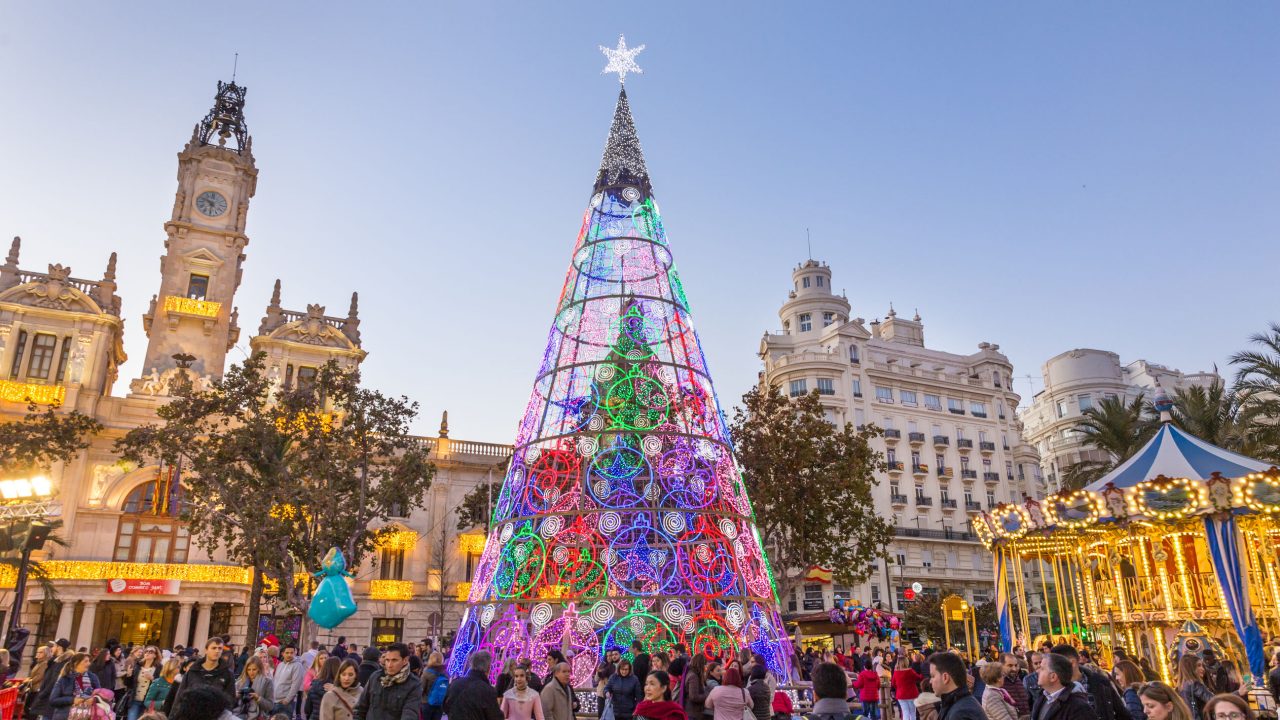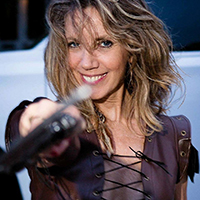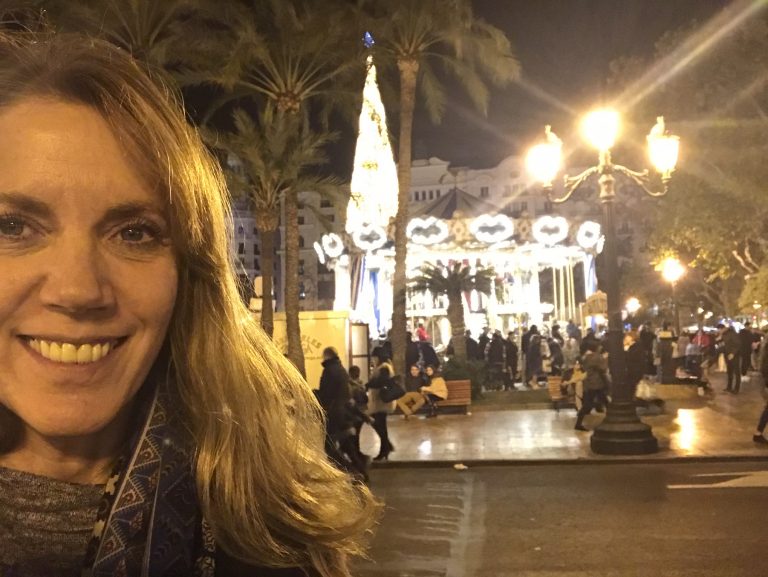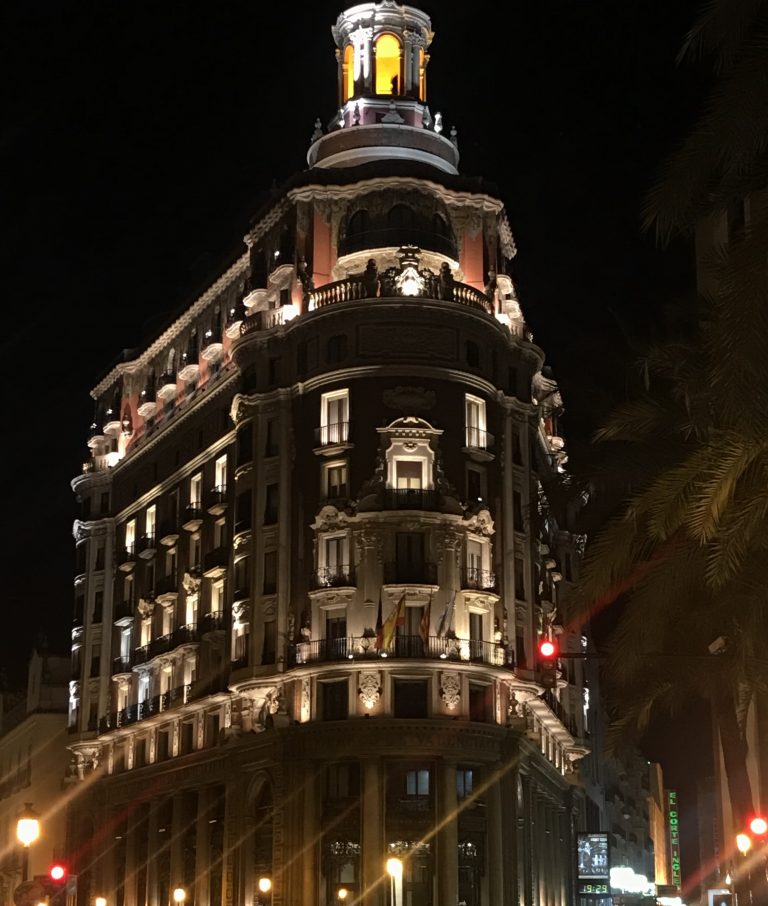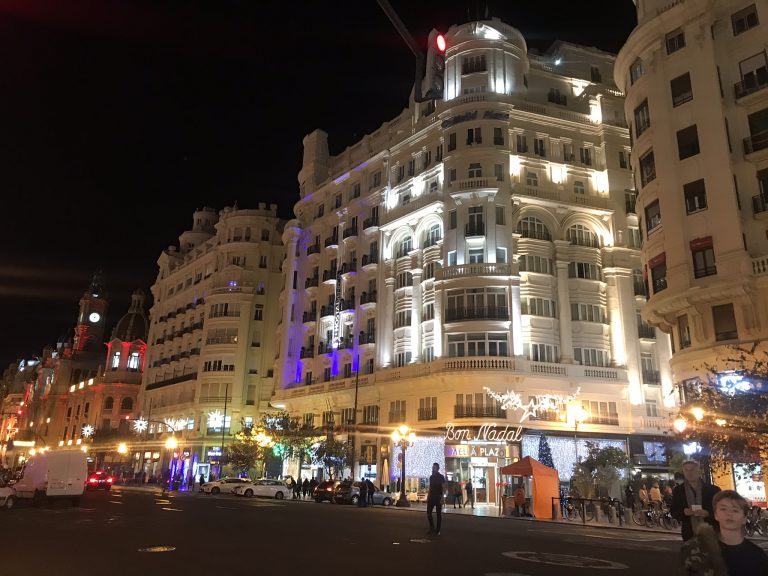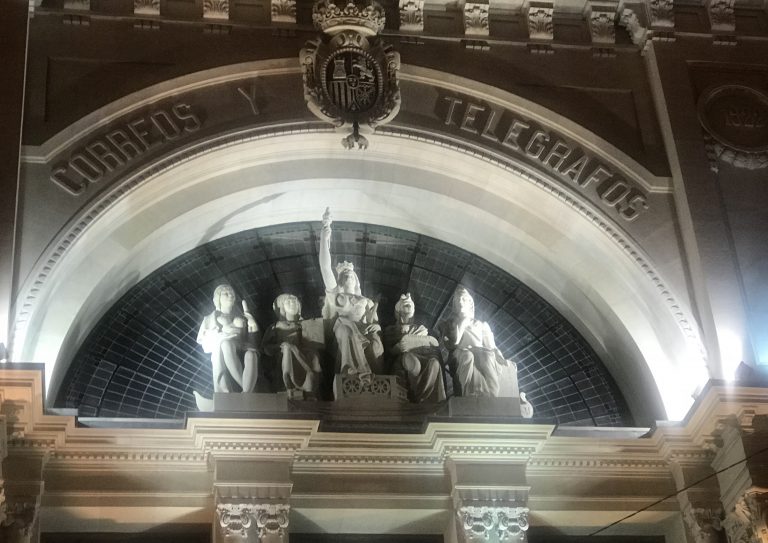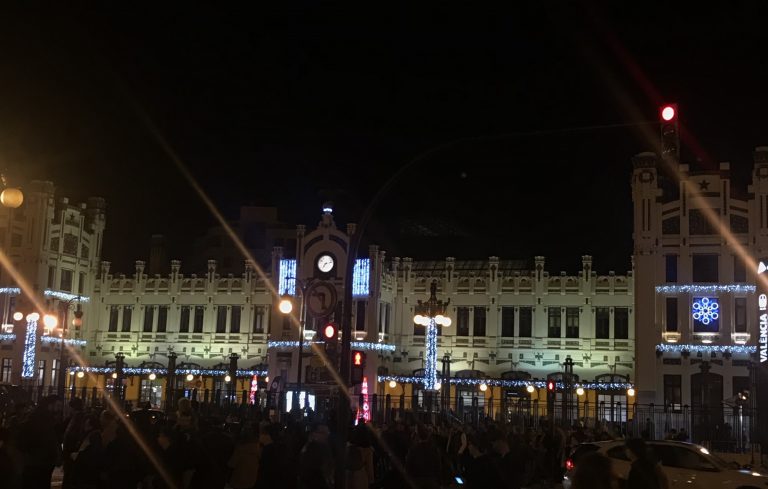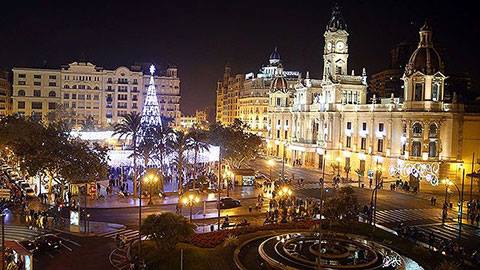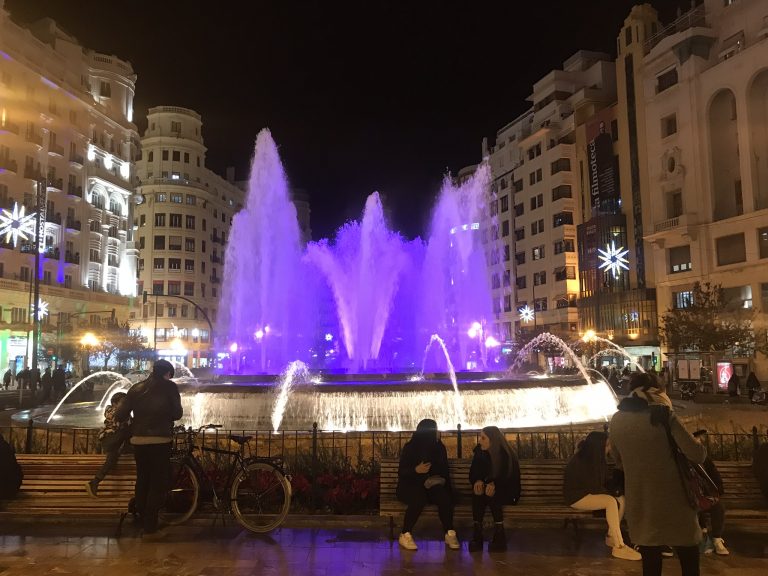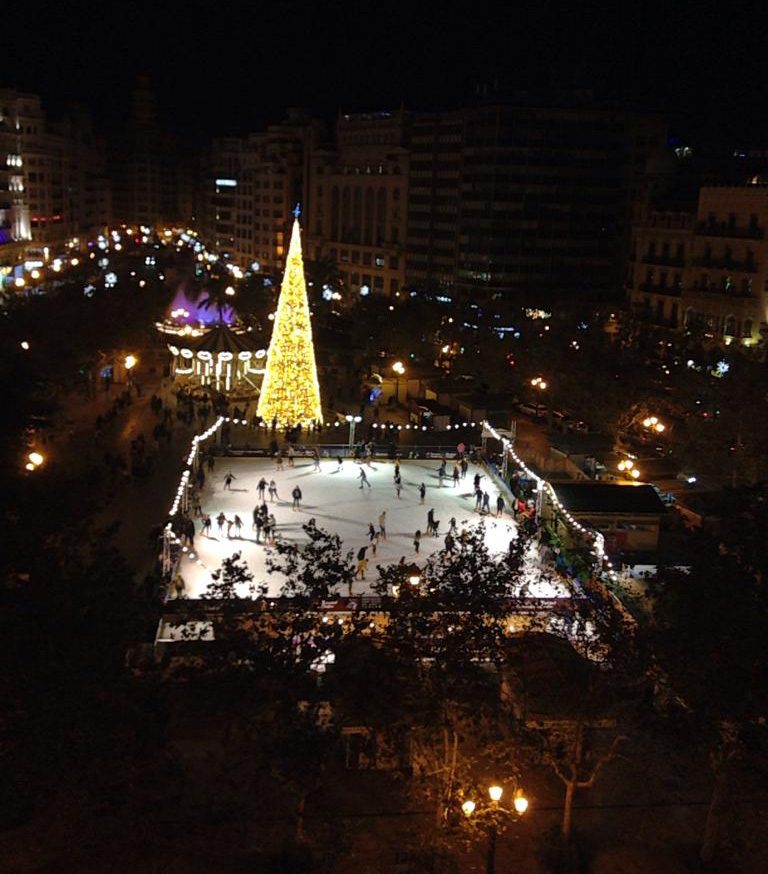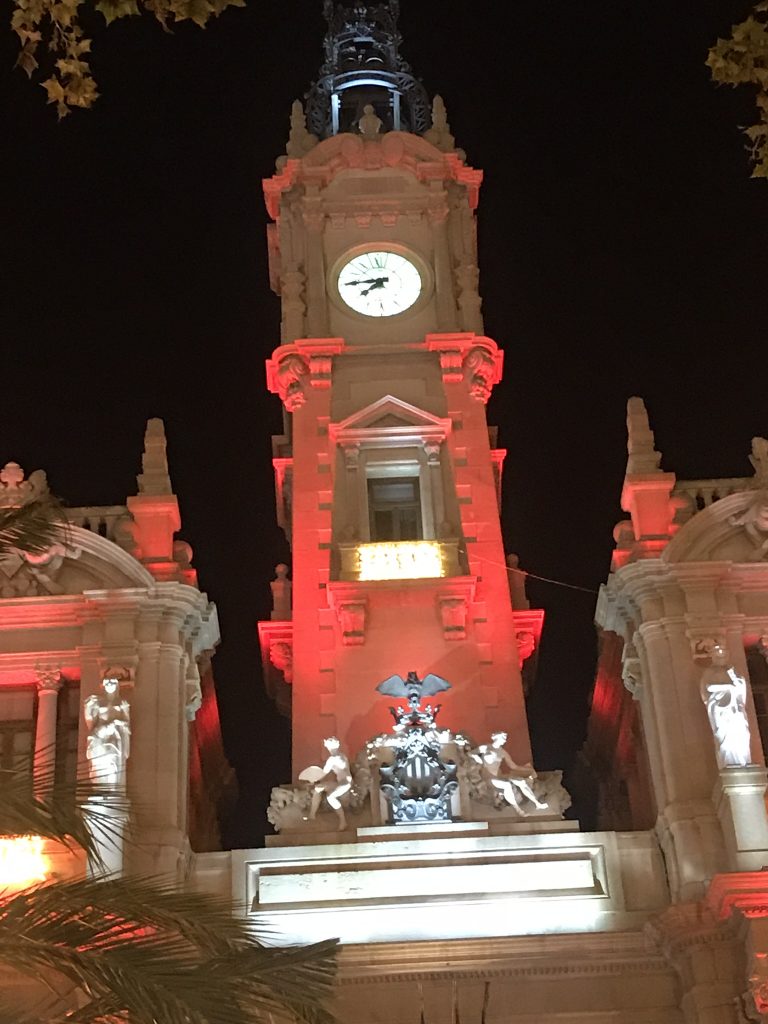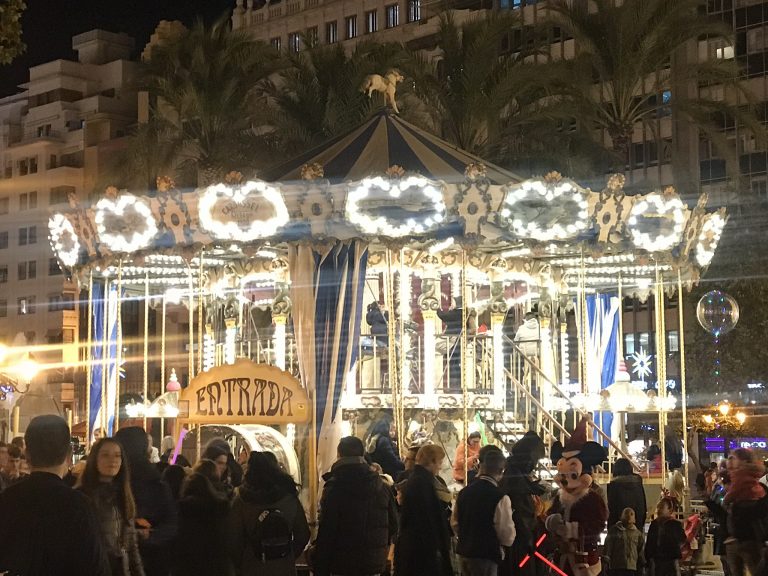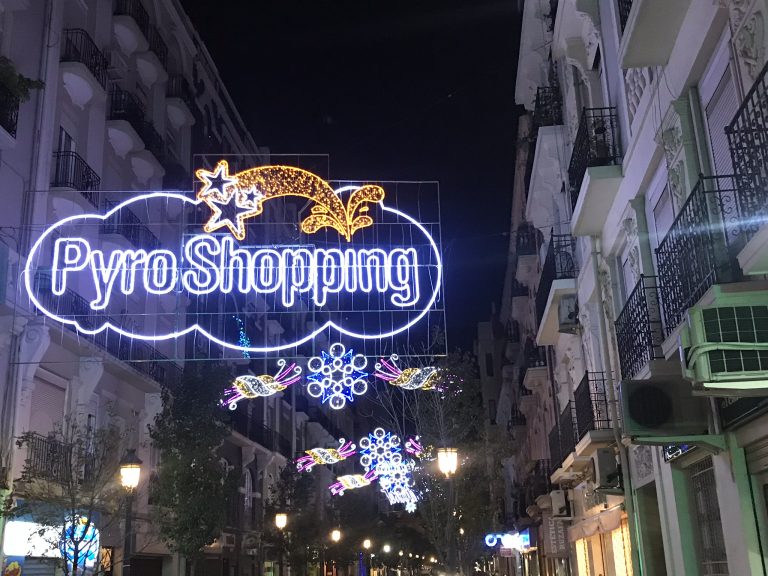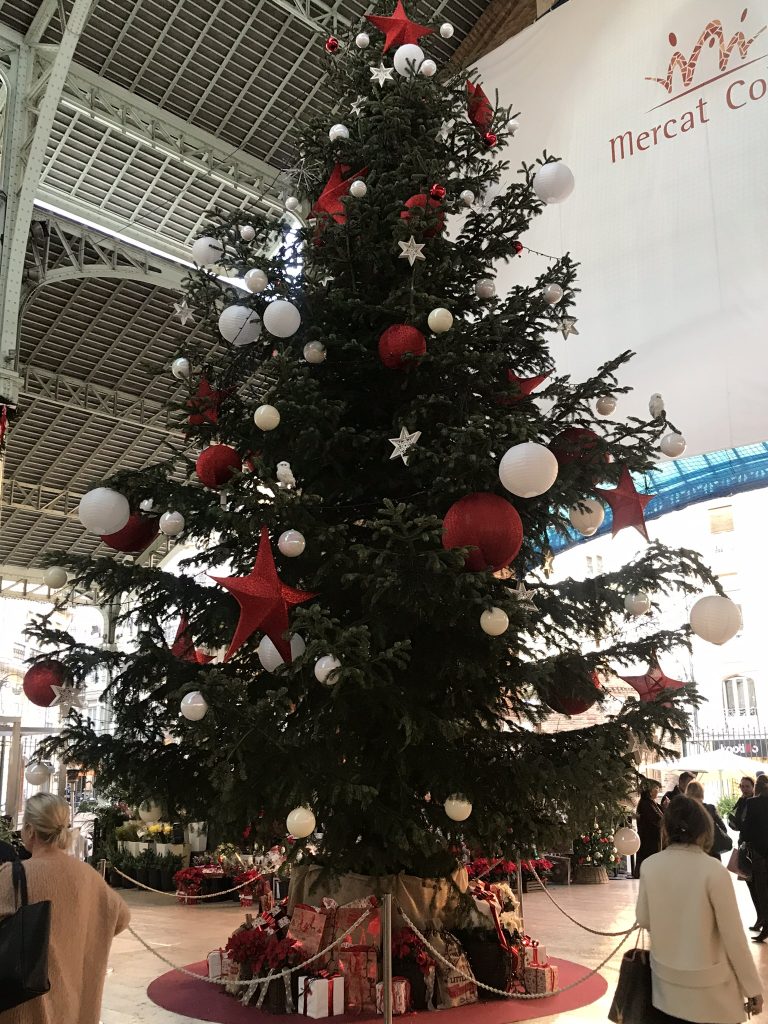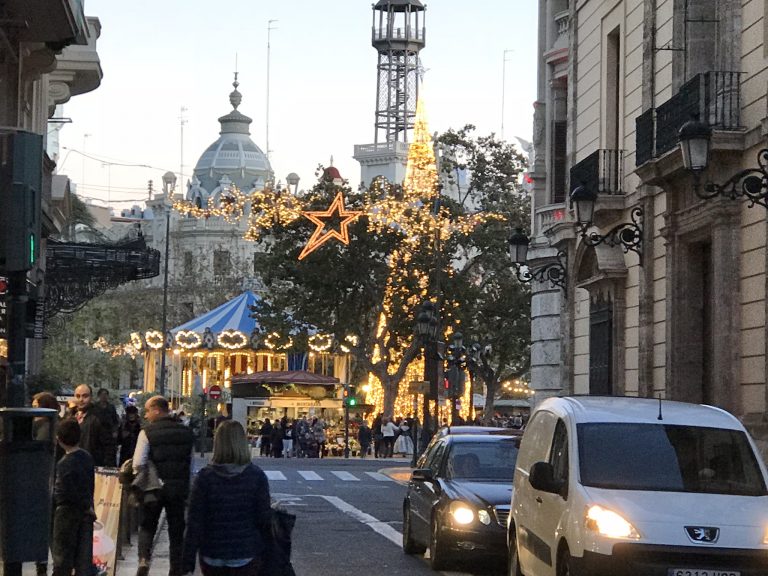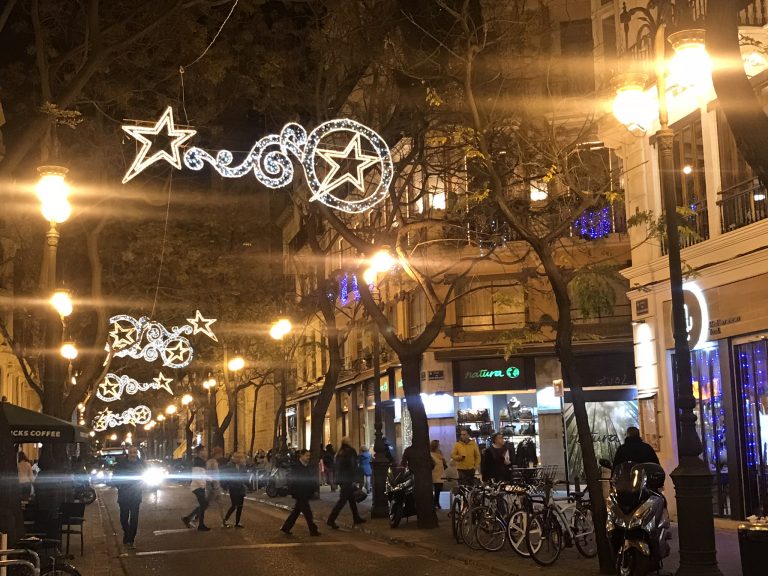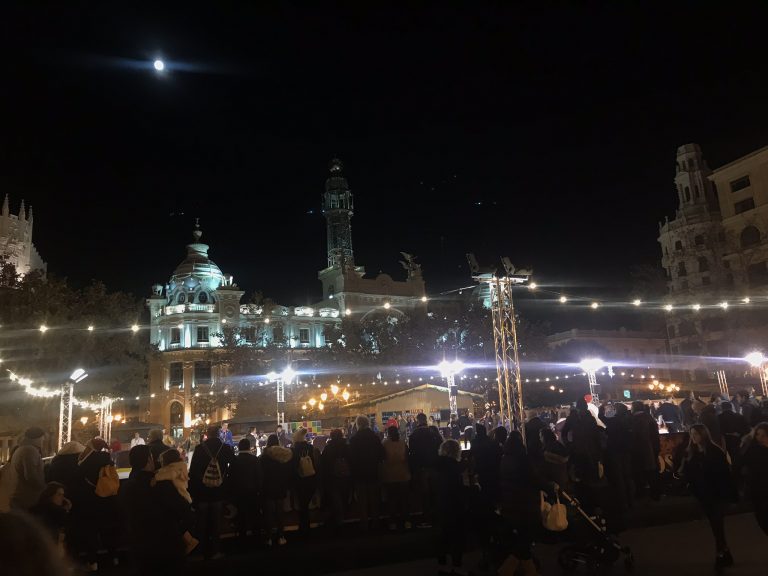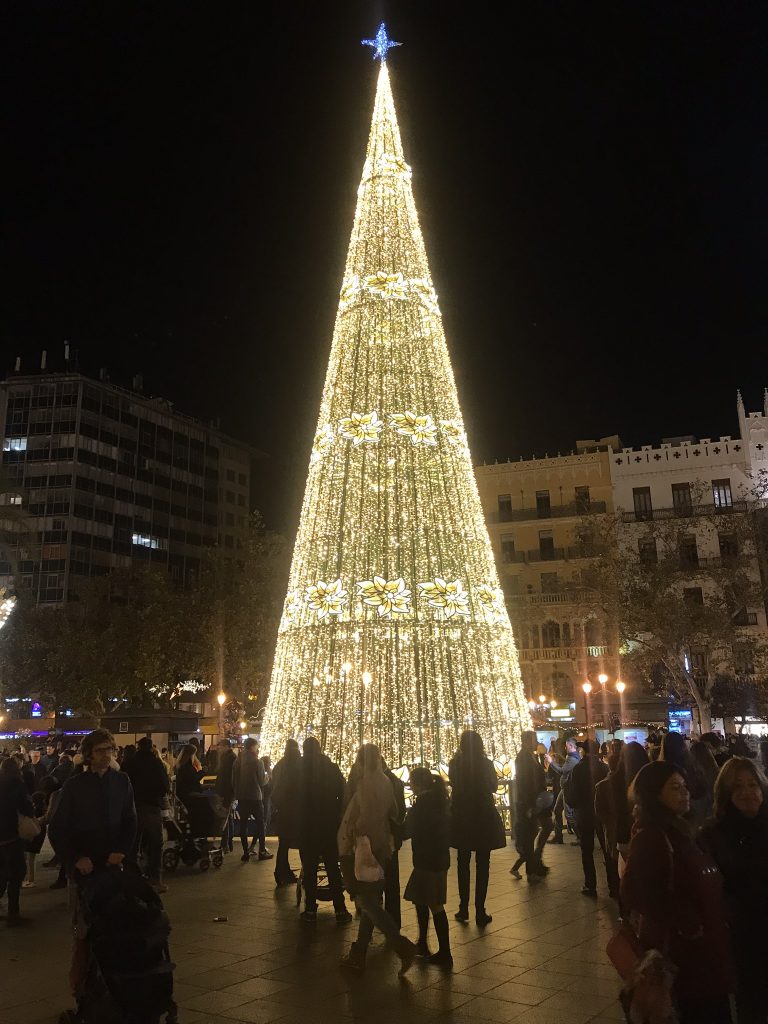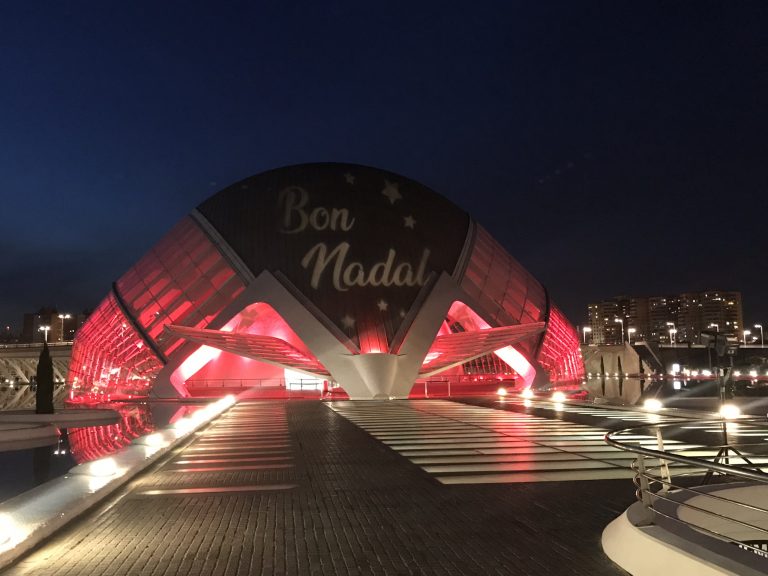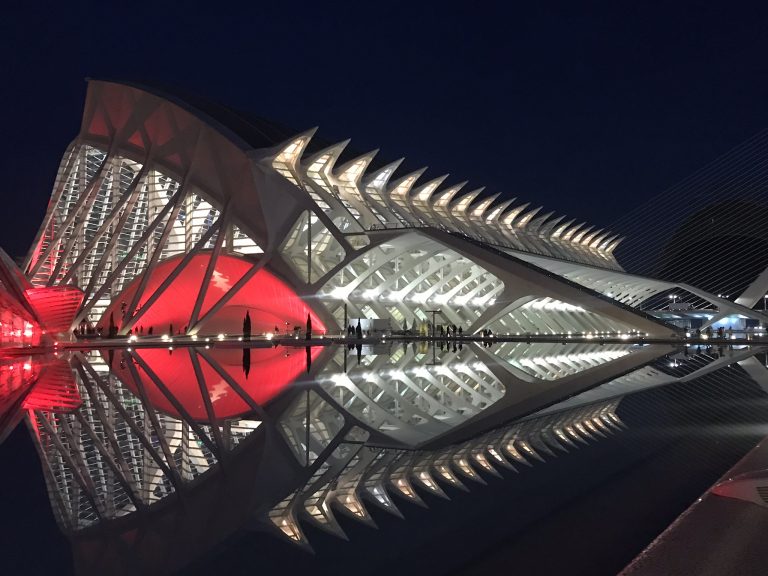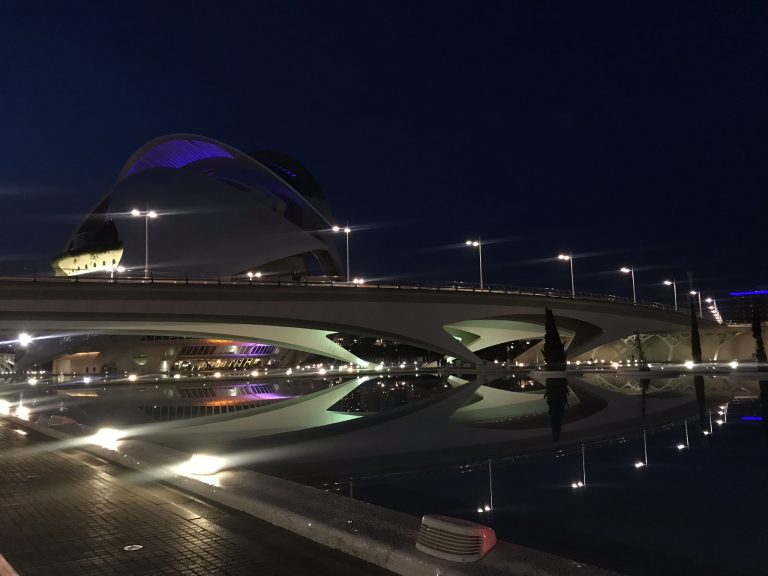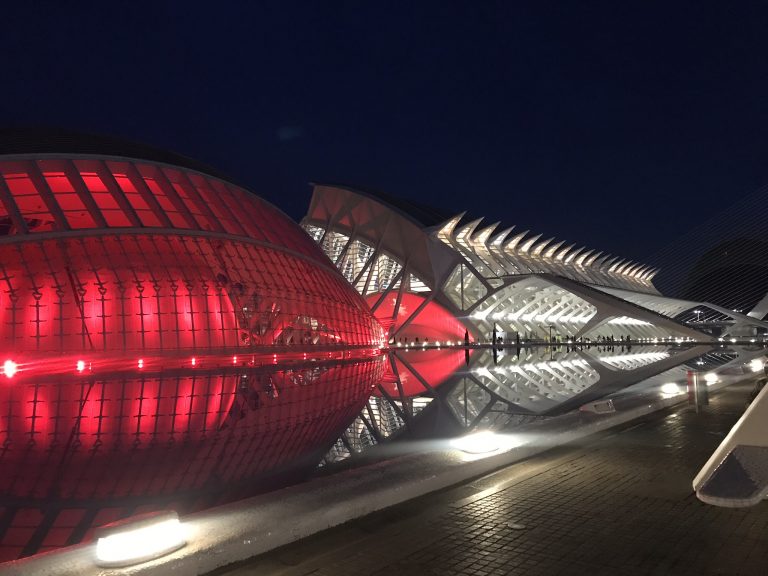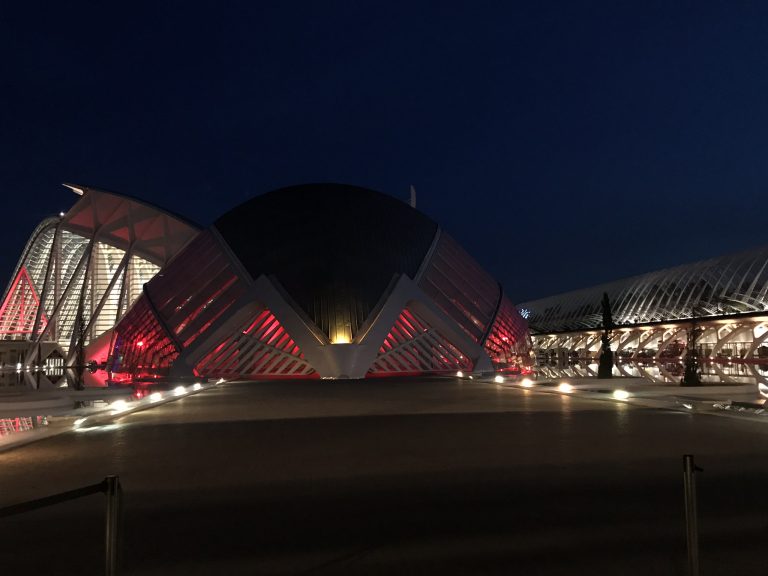The holiday season is full of Christmas festivities in Spain and they stretch it out until January 5th.
They have incredibly elaborate “Nacimiento” (nativity scenes), see video below of an enormous one in a church, Christmas trees, and remarkable Christmas markets scattered among villages and cities with piles of fruits, flowers, marzipan and other sweets, candles, decorations and hand-made Christmas gifts.
Christmas dinner is never eaten until after midnight. It is a family feast, and often highlighted with “Pavo Trufado de Navidad” (Christmas turkey with truffles; truffles are a mushroom-like delicacy found underground). After the meal, family members gather around the Christmas tree and sing Christmas carols and hymns of Christendom. The rejoicing continues through the wee hours of the morning. An old Spanish verse says…
“Esta noche es Noche-Buena, Y no es noche de dormir”
(This is the goodnight, therefore it is not meant for sleep.)
Christmas Day is spent at church, at feasts and more socializing.
Instead of Santa, they have the Three Wise Men. The Spanish Christmas continues for a few weeks after Dec. 25th. On the Eve of Epiphany, January 5th, children place their shoes on the doorstep, and in the secret of the night, the Three Wise Men pass leaving gifts. January 6th, Epiphany is heralded with parades in various cities where candy and cakes are distributed to throngs of children.
